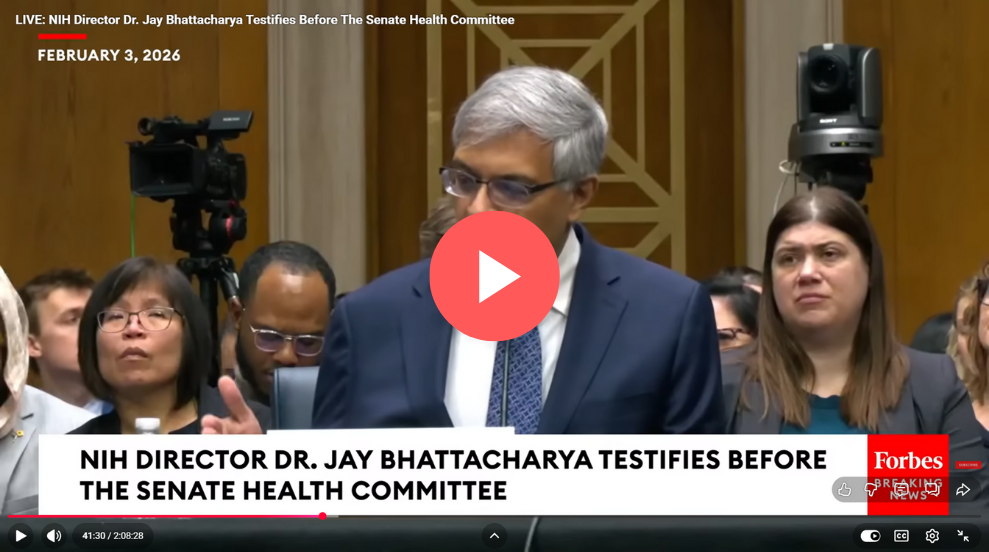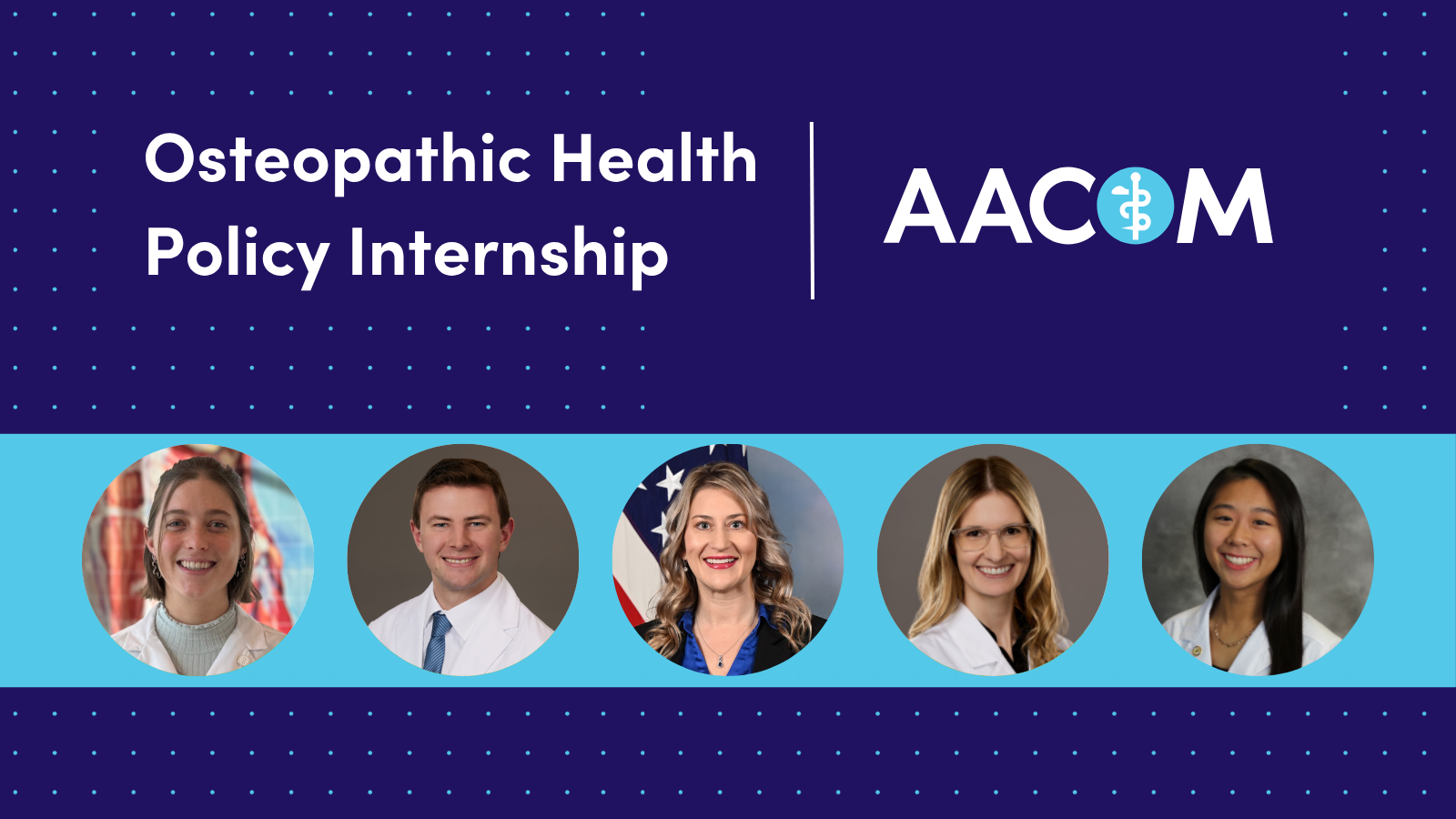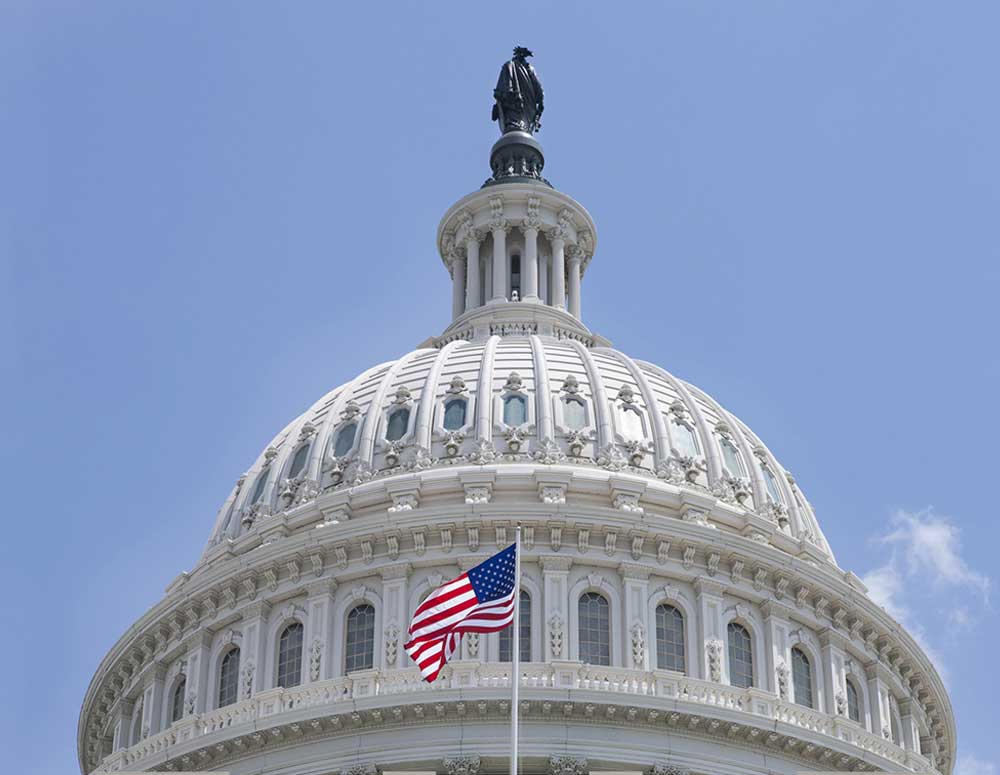OME Advocate Newsletter
Delivered twice-monthly right to your in-box, AACOM's OME Advocate keeps you informed and involved in policy discussions and legislation around healthcare, medical students and osteopathic medical education.

|
- AACOM CEO in Medical Economics: “This is an exciting time for osteopathic medicine”
- AACOM Student Financial Aid Webinar, Register Now
- AACOM Leadership Webinar: 2025 OME Impact Report
- AACOM Council Publishes Analysis of Top-Cited OME Research
- AACOM Endorses the Medical Student Education Authorization Act
- AACOM Supports the Foreign Medical School Accountability Fairness Act
- Senator Ossoff (D-GA) Cosponsors FAIR Act
ED Releases Federal Student Loan Proposed Rule: AACOM Hosts Informational Webinar
On January 30, 2026, the U.S. Department of Education (ED) published a notice of proposed rulemaking (NPRM) from the Reimagining and Improving Student Education (RISE) negotiated rulemaking committee that reached consensus last year. The RISE NPRM will implement the statutory changes regarding new federal student loan limits, elimination of the Grad PLUS loan program, definitions of “professional” and “graduate” degree programs, repayment plan changes and other provisions that were part of the One, Big, Beautiful Bill Act (OBBBA). More information on the NPRM can be found in ED’s press release and AACOM’s analysis of the consensus. The Department is accepting public comments through March 2, 2026. AACOM is preparing comments for submission and welcomes recommendations from the osteopathic community. You can also read AACOM’s comments to ED on these provisions from last year.
To learn more, join AACOM and policy experts from Venable LLP from 3:00-4:00 PM ET on Thursday, February 19, 2026, for an informational webinar to unpack the proposed rule and the impact on osteopathic medical students and schools.
NIH Director Addresses Osteopathic Research During Senate Hearing
The Senate Health, Education, Labor and Pensions Committee held a hearing on National Institutes of Health (NIH) modernization with NIH director Jay Bhattacharya, MD, PhD, on February 3, 2026. During the hearing, Senator Tommy Tuberville (R-AL) posed a question to Dr. Bhattacharya about the research funding disparity between osteopathic medical schools and allopathic schools.
Senator Tuberville noted that Alabama has two osteopathic medical schools but that DO institutions receive only about 0.1 percent of NIH funding compared to roughly 40 percent for MD-granting schools. Dr. Bhattacharya acknowledged NIH funding is highly concentrated, citing that 0.4 percent of institutions receive 20 percent of extramural research funding. Importantly, he said he is considering ways to broaden NIH investments to include more institutions and ideas. For more information, view AACOM’s analysis.

Osteopathic Medical Students: Submit Your Application for AACOM’s Osteopathic Health Policy Internship

There is still time to apply for AACOM’s 2026-2027 Osteopathic Health Policy Internship (OHPI) Program, where selected osteopathic medical students will spend eight consecutive weeks working virtually with AACOM's Government Relations and Health Affairs department. The OHPI Program is open to current second- and third-year osteopathic medical students (OMS II and III) who will be on their clinical rotations during the 2026-2027 academic year. First-year students and students entering the Match this year are not eligible for the internship. Learn more and apply by 11:59 PM on February 20, 2026.
President Trump Signs FY26 Spending Bill with Osteopathic Priorities
- On February 3, 2026, President Trump signed the Consolidated Appropriations Act, 2026, H.R. 7148, hours after the House passed it by a vote of 217-214, ending a four-day partial government shutdown.
- AACOM successes include report language in the Senate and House Labor, Health and Human Services, Education and Related Agencies (LHHSE) bill urging increased osteopathic research funding at the NIH, encouraging more community-based clinical rotations and expanding use of osteopathic manipulative medicine for pain.
- AACOM also advocated for LHHSE funding for additional programs of importance to the osteopathic community, including:
- A four-year extension for Teaching Health Centers Graduate Medical Education with $225-$300 million per fiscal year (FY), an increase from $175 million per year and three more years of certainty
- $47.2 billion for the NIH, $400 million above FY25 enacted
- $3.7 billion for the Centers for Medicare and Medicaid Services (CMS) (Program Management), level funding
- $1.4 billion for health workforce training at the Health Resources and Services Administration (HRSA), $21 million below FY25 enacted, including $508 million for Title VII health professions training, $12 million below FY25 enacted
- $130 million for the National Health Service Corps (NHSC) and loan repayment, with a 15 percent set-aside for clinicians serving at Indian Health Service and tribal facilities
- To learn more, please review AACOM’s analysis of the LHHSE bill.
ED Accepting Negotiator Nominations for Accreditation Rulemaking Committee
- ED recently announced its intent to establish the Accreditation, Innovation and Modernization (AIM) Committee to revise federal accreditation regulations in line with Executive Order 14279 to advance the President’s higher education reform agenda.
- The rulemaking will focus on modernizing accreditation by simplifying recognition of accreditors, addressing cost and credential inflation, preventing undue influence, eliminating discriminatory standards and refocusing quality assurance on data-driven student outcomes.
- The Department is accepting nominations for negotiators through February 27, 2026, with the AIM committee slated to meet for two five-day sessions in April and May.
Apply for Final Round of GME Section 126 Slot Distribution
- CMS opened the final round of applications for 200 Medicare-supported graduate medical education (GME) positions under Section 126 of the Consolidated Appropriations Act, which will complete the distribution of 1,000 new GME positions.
- Eligible hospitals include rural designated hospitals, hospitals in states with new medical schools, hospitals over their GME cap and hospitals in health professional shortage areas (HPSAs). GME slots are awarded based on prioritization via HPSA scores with remaining slots allocated to hospitals with the greatest workforce needs.
- More information can be found on the CMS Direct Graduate Medical Education website. Applications are due March 31, 2026.
Engagement & Resources
HRSA Rural Residency Planning and Development (RRPD) Program Upcoming Funding Opportunity: Applications for the RRPD Program are expected to open on February 16, 2026, and awards are estimated to go out in July. Focused on broadening the availability of healthcare in rural communities, the program supports new residency programs to strengthen the physician workforce in these settings. Learn more. |
2026 Federal Office of Rural Health Policy (FORHP) Preview Webinar: The FORHP will hold a webinar on Tuesday, February 17, 2026, at 3:00-4:15 PM ET to assist with rural communities’ planning efforts. The webinar will outline scheduled funding opportunities, possible collaborations, the office’s priorities and available resources for FY26. Learn more. |
HRSA Upcoming Grant Opportunities for the Rural Communities Opioid Response Program (RCORP): HRSA posted forecasted grant opportunities for RCORP-Planning grants, expected to open February 25, 2026, and close April 27, 2026. RCORP-Impact grants are expected to open March 18, 2026, and close May 18, 2026. The RCORP assists rural communities in planning and implementation efforts to reduce the mortality and morbidity associated with substance use disorder (SUD). Learn more about the planning and impact opportunities. |
Apply Now for NHSC Student Loan Repayment Programs (LRPs): Applications are due March 31, 2026, at 7:30 PM for the NHSC LRP, NHSC SUD Workforce LRP and the NHSC Community LRP. These programs provide up to $100,000 for HPSA-serving health providers who work in NHSC-approved sites to pay off their student loans. Learn more. |
Applications Open for USA’s Community Facilities Direct Loan & Grant Program: Applications are open year-round and awarded on a rolling basis for the Community Facilities Direct Loan & Grant Program to provide funding for community facilities in rural communities, including hospitals, healthcare providers and childcare centers, among others. Learn more. |

-(1).png?sfvrsn=1fcdc432_1)



